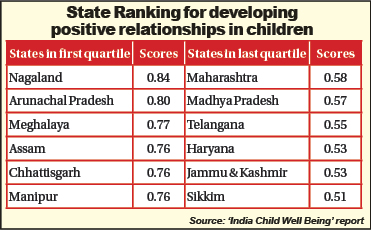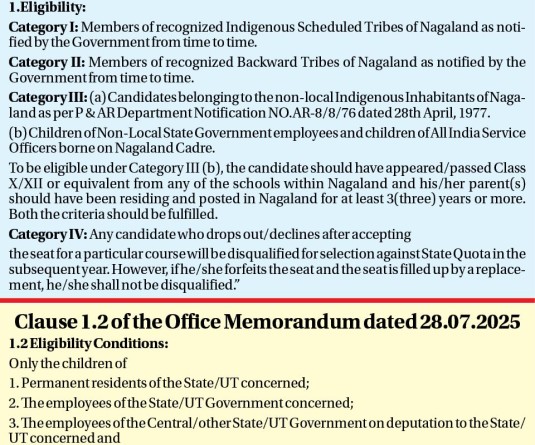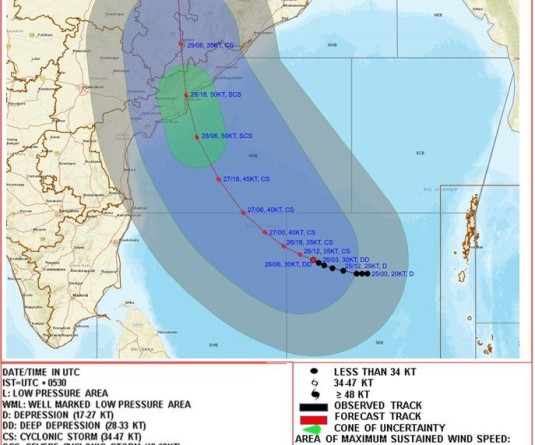Nagaland top State in developing ‘positive relationships’ for children

Morung Express News
Dimapur | September 3
The ‘India Child Well-being Report’ has shown impressive performance by several North East States towards developing positive relationships for children.
The report, a collaborative effort of World Vision India and IFMR LEAD, was released in full today. According to the report, Nagaland topped in the category of developing positive relationships for children with a score of 0.84. This was followed by Arunachal Pradesh with a score of 0.80 and Meghalaya with a score of 0.77. Assam came in fourth with a score of 0.76, while another North East State Manipur occupied the sixth spot with a score of 0.76.
The report indicated that more children in these states are enjoying care in the environment they are growing in. The North-Eastern states also had a better sex ratio, lesser involvement of children in crimes and most births being registered.
It stressed on the importance of this dimension of child well being while citing the UN Guidelines for Prevention of Juvenile Delinquency that “it requires efforts on the part of the entire society to ensure the harmonious development of adolescents, with respect for and promotion of their personality from early childhood.”
This dimension looks at the relationships at the community and other levels that contribute to children’s well-being, ensuring that they are safe, protected and cared for. The indicators revolve around the important services, institutions and other state and nonstate actors, their presence, ability and resources to function effectively.
In Nagaland specifically, the involvement of children in crimes were low, more births were registered and suicides among children were low. However, another North-Eastern state Sikkim was at the bottom of the last quartile, owing to its higher number of crimes by juveniles and suicides among children.
Overall, in the composite child well-being index, each State and Union Territory was ranked based on a composite score that was computed. The value of the scores ranged from 0.77 to 0.44.
Among the states, Kerala topped the list with a score of 0.76. Recording a score of 0.44, Madhya Pradesh was in the last quartile with the least score on child well-being. Among the Union Territories, the well-being score for the National Capital Territories of Delhi was 0.53, closely followed by Dadra Nagar Haveli at 0.52.
On many measures of child well-being, Kerala surpassed most Indian states by ensuring access to good health and nutrition to children and safe drinking water and sanitation, providing quality education and addressing poverty.
Among the Union Territories, Puducherry topped with good scores in the areas of providing health, nutrition and clean water and addressing poverty.
The ‘India Child Well-Being Index’ is almost entirely based on government data. As part of the data review and collation, a large amount of information was gathered especially at the state level. The data for the composite index at the national level as well as the three dimensions of well-being was presented to provide a snapshot of the current status in a state-based ranking.
The dimension and the composite index has been divided into quartiles to facilitate a detailed look at how well the states perform within each of the dimensions The dimensions include scores on healthy individual development, positive relationships and protective contexts





